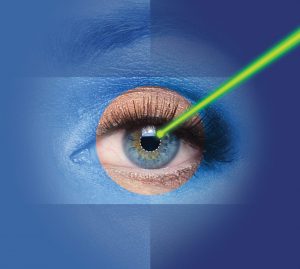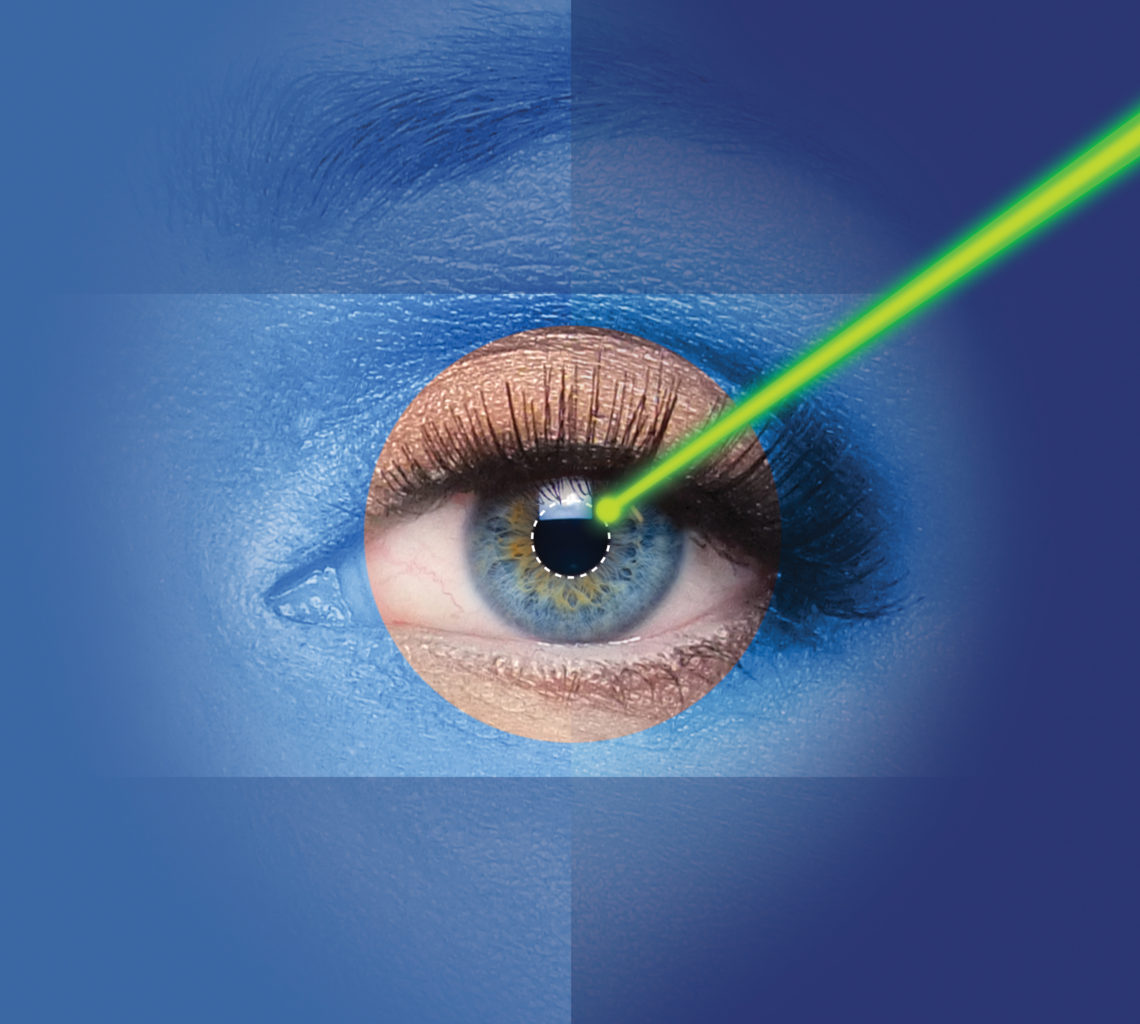Thousands of Irish clients are booking appointments to come to Spain to avail of the Cross Border Directive scheme.
Cataract surgery in Spain can be totally FREE to our Irish patients.
Why wait around in Ireland for cataract surgery? We speak to Irish patients daily. Some of them have been waiting 2 years for surgery. We have a number of questions we ask them;
- Can you see well enough to safely do your job?
- Can you safely drive?
- Any problems reading or watching television?
- Do bright lights make it more difficult to see?
- Is it difficult to cook, shop, take medications or even climb the stairs?
- Are vision problems affecting your level of independence?
Let’s say that it becomes obvious that a person needs cataract surgery, then what?
Cataract surgery is a relatively simple procedure. Our team of surgeons in Spain will remove the lens of your eye and, generally, replace it with an artificial lens. In a normal eye, the lens is clear. A cataract patient realises that the lens has become cloudy. This eventually affects your vision.
Cataract surgery is performed by an ophthalmologist (eye doctor). There are many of Europe’s top doctors operating in Spain and we work with them. Operations are usually performed on an outpatient basis, especially in our Levante hospital. This means our patients don’t have to stay in the hospital overnight after the surgery. We have a deal with the Melia hotel, for example, just 50 metres away from the front door of the clinic. Our patient liaison office will literally walk you back to your accommodation and we’ll be there for you if you need a cup of tea or a facetime call with the family.
Many of our patients already have a property in Spain or can stay with a family member here. Normally you can go home on the same day as your surgery. Our doctor tells our patients however that they need to arrange for a ride home because they won’t be able to drive. Many of our patients bring a friend to Spain with them, and have a mini vacation. Your doctor may limit activities, such as exercise, bending or lifting, for about a week after surgery.
Cataract surgery is very common and is generally a safe procedure.
Why is Cataract surgery done in Spain?
The reasons patients choose Spain is obvious. The waiting times in Ireland are just not sustainable. The HSE doesn’t want more people on the list, so they pay for the patient to have their surgery abroad and our private hospitals to take care of these people. We are delighted to do so and this arrangement means that it is often a totally 100% FREE service we can offer to patients.
Cataracts can cause blurry vision to our patients and increase the glare from lights. Night driving can be particularly difficult, not to mention dangerous. Our consultant in Spain tells our patients that if a cataract makes it difficult for you to carry out your normal activities, it is time to take corrective action.
Sometimes a cataract interferes with the treatment of another eye problem. This is another time where cataract surgery may be recommended. Take age-related macular degeneration or diabetic retinopathy for example. Our doctor may recommend cataract surgery if the cataract makes it difficult for your Irish eye doctor to examine the back of your eye. That means they have difficulty monitoring or treating other eye problems.
Waiting to have cataract surgery won’t harm your eye. The HSE knows this but yet they do not want that list to get longer. They also understand that there is no advantage in waiting. If your vision is still quite good however you may not need cataract surgery for many years, or better still never.
Risks of Cataract surgery.
Thankfully, considering how many clients get this type of procedure in Spain, the complications after cataract surgery are uncommon. Most complications can be treated successfully.
Cataract surgery risks include: Inflammation, Infection, Bleeding, Swelling, Drooping eyelid, Dislocation of artificial lens, Retinal detachment, Glaucoma, Secondary cataract, Loss of vision.
Your consultant in Spain will speak to you before, as will your GP in Ireland. The risk of complications for example is greater if you have another eye disease. People ask us what happens to them if the unthinkable happens and there is a complication. The HSE is fully responsible and liable for any additional treatments you may have in Spain. Occasionally the cataract surgery fails to improve vision. This is usually because of underlying eye damage from other conditions, such as glaucoma or macular degeneration. We always find it beneficial to evaluate other eye problems before making the decision to have cataract surgery, especially here in Spain.
How do you prepare for your surgery in Spain?
Pre-travel.
You will have plenty of chats with our team before you come to Spain. Once you are ready to travel, then the advantages of working through us really are clear to see. (apologies for the pun). Our admin team takes care of everything; hotels, transfers to the hospital, uploading of scans for your consultant to see etc.
By the time you arrive at Dublin airport (or Cork, Shannon or Knock) we will be ready here in Spain to pick you up. Perhaps you wish to take a friend over too? Great, we’ll help you there too.
You’ll get in the night before meeting our surgeon in person for the first time. We’ll make sure you have everything you need for a comfortable night. We really recommend a good 8 hours of sleep the night before.
Food and medications
You will probably be instructed not to eat or drink anything 12 hours before your cataract surgery. Your eye doctor may also advise you to temporarily stop taking any medication. He’ll advise you in advance.
In some cases, an Antibiotic eye drop may be prescribed for use one or two days before the surgery.
What you can expect
Before the procedure
Before your surgery, your doctor performs a painless ultrasound test to measure the size and shape of your eye. This helps them and you to determine the right type of lens implant; intraocular lens, or IOL.
We are not doctors, remember so we depend on the advice of the professionals. They say that most patients who have cataract surgery will be given IOLs. These types of lenses improve your vision by focusing light on the back of your eye. Great news; You won’t be able to see or feel the lens which requires no care and becomes a permanent part of your eye.
Before surgery, you and your eye doctor discuss which type of IOL might work best for your lifestyle.
Some of the types of lenses available include:
- Fixed-focus monofocal: single focus strength for distance vision. Reading will require the use of reading glasses.
- Accommodating-focus monofocal. These lenses can respond to eye muscle movements and shift focus to near or distant objects.
- Multifocal. similar to glasses with bifocal or progressive lenses, they allow for near, medium and far vision.
- Astigmatism correction (toric). Those with significant astigmatism will benefit.
During the procedure
Cataract surgery is fairly simple. It usually is an outpatient procedure and takes an hour or less to perform.
First, your specialist doctor will place eyedrops in your eye to dilate your pupil. You will receive local anaesthetics to numb the area. You may be given a sedative to help you relax.
During the cataract surgery, the clouded lens is removed. A clear artificial lens is then implanted. In some cases, however, a cataract may be removed without implanting an artificial lens. Your doctor will explain the various Surgical methods used to remove cataracts. These include;
- Using an ultrasound probe to break up the lens for removal.
- Making an incision in the eye and removing the lens in one piece.
After the procedure.
Once you’re given the all-clear by the surgeon we take you to your accommodation. After surgery, you can expect your vision to begin improving within just a few days. It’s normal for your vision to be blurry at first as your eye heals and adjusts.
A cataract is usually yellow, muting the look of colours. Once you’ve had your procedure, colours may seem brighter amazingly because you are looking through a brand new lens.
You’ll usually see your eye doctor again a day (or two) after your surgery.
It’s normal to feel a slight itching and mild discomfort for a couple of days after surgery. We prefer if you bring a family member or friend with you to Spain but either way, that is fine.
Your doctor may ask you to wear an eye patch or protective shield. This will only be for the day of surgery. The surgeon may also recommend wearing the eye patch for a few days after your surgery and in some cases the protective shield while you sleep during the recovery period.
Your doctor here will prescribe eye drops or other medication to prevent infection, reduce inflammation and control eye pressure.
After a couple of days, most of the discomfort should disappear. While you are here, you can relax and the sunny Spanish environment will, we think, speed up your healing. Complete healing generally occurs within eight weeks.
Results
Cataract surgery in Spain successfully restores vision in the majority of people who have the procedure. Coming here avoids two years of waiting around on an HSE waiting list.
If you would like to speak to one of our patients who has had the surgery we can make that happen. Your GP will for sure want to talk to us and that is fine. We also coordinate the process with the HSE, Credit union, (perhaps you need a loan) your surgeon here in Spain etc.
We will also talk to your family members if they are nervous about you coming abroad for surgery. Spain is different however and most people understand the standard of medical care here is one of the highest in R¡Europe.
For more information about when we can get you over to Spain for surgery, why not send a message to Liam now?
info@surgerynow.ie
We’ll call you back and explain more about how it all works.

Eye surgery in Spain is often fully paid for by HSE.

Leave A Comment